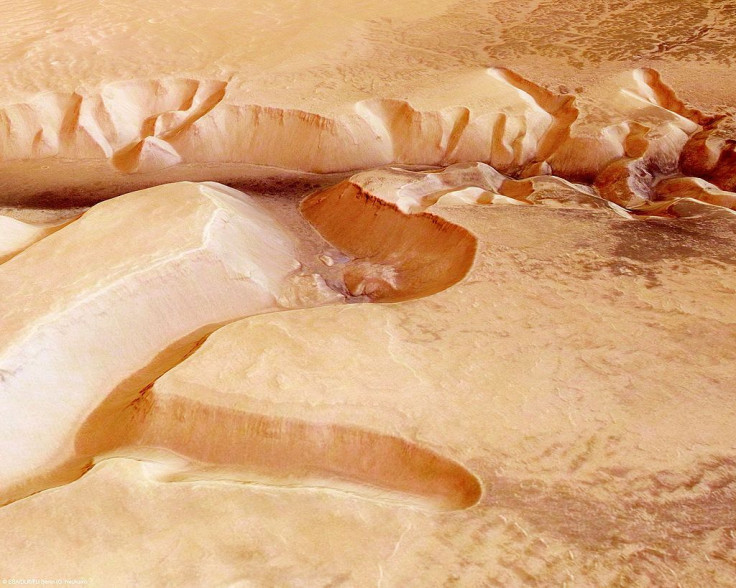Mars Surface Mystery: Red Planet Water Vapor Is Leaking Hydrogen

A new study recently surfaced that could possibly explain why there’s no water that can be found on the Planet Mars - the Red Planet is leaking Hydrogen to space.
According to a report, a team of researchers from the Moscow Institute of Physics and Technology and the Max Planck Institute for Solar System Research (MPS) in Germany has discovered a possible explanation on why Mars has become a dry and dusty planet today. The report stated that Planet Mars has a very unusual water cycle and shows that the Martian atmosphere is actually leaking hydrogen into space.
Using data gathered via space telescopes and space probes that analyze the Red Planet’s weather, the scientists were able to simulate what happens during certain periods of the Martian year. What they discovered was actually quite surprising. The scientists believe that hydrogen found in the planet’s water vapor is making its way from Mars to open space.
Per the report, water can only rise from the lower into the upper atmosphere during a very limited time window in Martian years. This happens approximately every two Earth years when Mars’ most southern hemisphere is at its closest to the sun. Kind of like Earth summers.
“When it is summer in the southern hemisphere, at certain times of day water vapor can rise locally with warmer air masses and reach the upper atmosphere,” Paul Hartogh, from MPS, said.
The vapor then reaches the North Pole where it condenses into liquid form but instead of hitting the ground, it falls out of the sky. During this phenomenon, some of the water particles are said to break and in the process leak hydrogen atoms into space.
If true, this could be a plausible explanation of why Planet Mars does not have water and could eventually explain what happened to life on Mars if it existed before.
Many scientists believe that massive bodies of water used to exist on Mars. Space agencies such as NASA and the European Space Agency (ESA) actually believe that massive bodies of water also existed both above and below the planet. There are quite a few evidence that water in the planet once existed and may have even supported life. This includes water-rich minerals and clays that are found in older regions of Mars.
The planet, however, has changed significantly for billions of years. Some scientists believe that because of thin carbon dioxide-atmosphere and a harsh surface environment with a thinning atmosphere that’s unprotected by a global magnetic field, Mars water has disappeared and left it the cold and dry planet we’ve come to know.
© Copyright IBTimes 2025. All rights reserved.





















